5 Vegetable Oil Replacements for Frying Needs
Vegetable oil substitutes for frying have become increasingly popular among health-conscious cooks and culinary experimenters alike.
Many alternatives now offer better nutritional profiles while maintaining that perfect crispy texture everyone loves.
The traditional options might lack certain benefits that these innovative replacements readily provide to home chefs.
Smart swaps can transform ordinary fried dishes into extraordinary meals with distinctive flavors and reduced guilt.
Most people don't realize how simple changing their frying medium can be until they take that first delicious bite.
The right substitute often elevates food with nuanced taste notes that basic vegetable oil simply cannot deliver.
Ready to transform your fried favorites with healthier, more flavorful options? The rest of this article reveals exactly which alternatives will work best for different cooking techniques and flavor profiles.
Popular Recipes Requiring Vegetable Oil
Vegetable oil is a kitchen staple used in many popular recipes because it has a neutral taste and helps with moisture, frying, and texture:
Vegetable Oil Alternatives
Vegetable oil running low can be handled by working in a fat that serves the same use. The rest of the preparation stays on point from start to finish.
Coconut Oil
Coconut oil stands out as nature's perfect substitute for other cooking oils thanks to its impressive 350°F smoke point and rich flavor profile.
USDA-certified organic versions like Viva Naturals offer multiple benefits beyond the kitchen, working wonders for dry hair as a conditioning treatment and on skin as a natural moisturizer.
Many people don't realize that this versatile oil works equally well for frying, baking, and sautéing with a simple 1:1 replacement ratio for vegetable oil.
Coconut oil stays solid at room temperature because of its saturated fat content, making it easy to measure precisely for recipes.
Ghee
Golden Monkey Clarified Butter offers 100% organic ghee made from grass-fed cows' milk, perfect for those following paleo or keto diets with its lactose-free and gluten-free properties.
This versatile ghee butter, rooted in ancient Ayurvedic traditions, works wonderfully in coffee, cooking, frying, or simply spread on bread while boosting your energy levels naturally.
The health benefits are remarkable - from reducing bad cholesterol and inflammation to improving gut health and immunity without any artificial ingredients.
Family farms across the USA supply all the milk in small batches, ensuring authentic quality and supporting local agriculture in every jar.
Tallow
Bison tallow stands out as a premium cooking fat that delivers both health benefits and amazing flavor for all your favorite dishes.
This 11oz jar fits perfectly in your pantry, ready whenever cooking inspiration strikes.
From pan-seared meats to crispy bison fat fries and roasted sweet potatoes, this versatile fat enhances everything it touches.
Health-conscious cooks will love that it's gluten-free and compatible with keto, Whole30, and paleo eating plans.
Many home chefs are rediscovering animal fats like tallow as delicious alternatives to processed oils, appreciating their stable cooking properties and rich taste.
Butter
Kerrygold Naturally Softer Pure Irish Butter stands out as a premium dairy product made exclusively from milk of summer grass-fed cows in Ireland.
The special gentle churning process creates a naturally rich and spreadable texture that's unlike any other butter on the market.
Irish family farms raise these cows without growth hormones, resulting in milk with exceptional flavor that makes this butter so deliciously creamy.
Beyond their famous butter, Kerrygold crafts wonderful cheeses like Dubliner, aged cheddar, and Blarney Castle with the same dedication to quality.
Avocado Oil
Avocado oil is an excellent substitute for generic vegetable oil in frying because it has a very high smoke point (around 520°F/271°C), letting you cook at high temperatures without burning or developing off-flavors.
Its neutral, buttery taste won’t compete with your food’s seasoning, and its monounsaturated-rich profile makes it more heat-stable and heart-healthy than many seed oils.
You can swap it 1:1 for vegetable oil in any pan-frying or deep-frying application.
Its smooth texture also helps create crisp, evenly browned crusts, just like standard frying oils.
Overall, avocado oil delivers comparable performance with added nutritional and flavor benefits.
Choosing Oils for Dietary Needs (Vegan, Low-Fat, Heart-Healthy)
Choosing the right oil for your kitchen depends on your diet, health goals, and personal taste, so it helps to know what each type offers:
Vegetable Oil Alternatives: FAQ Guide
1. Can I use butter instead of vegetable oil in baking?
Yes, melted butter adds richness and flavor to baked goods but may change the texture slightly compared to oil.
2. Are there dairy-free alternatives to vegetable oil?
Yes, all plant-based oils like canola, sunflower, avocado, and coconut oil are dairy-free, as are fruit purees like applesauce.
3. Can I use applesauce as a vegetable oil substitute?
Yes, unsweetened applesauce works well in muffins, cakes, and quick breads, making them moist with fewer calories and less fat.
4. Is coconut oil a good alternative to vegetable oil?
Coconut oil is a popular substitute and works well in baking or sautéing, but it will add a subtle coconut flavor to your recipes.
5. Are vegetable oil substitutes suitable for frying?
Canola, sunflower, and avocado oils all have high smoke points and are good for frying. Butter and olive oil are best for low or medium heat.
6. Will using a substitute change the texture of my baked goods?
Some swaps, like applesauce or butter, may make baked goods more moist or dense, so monitor texture and baking time.

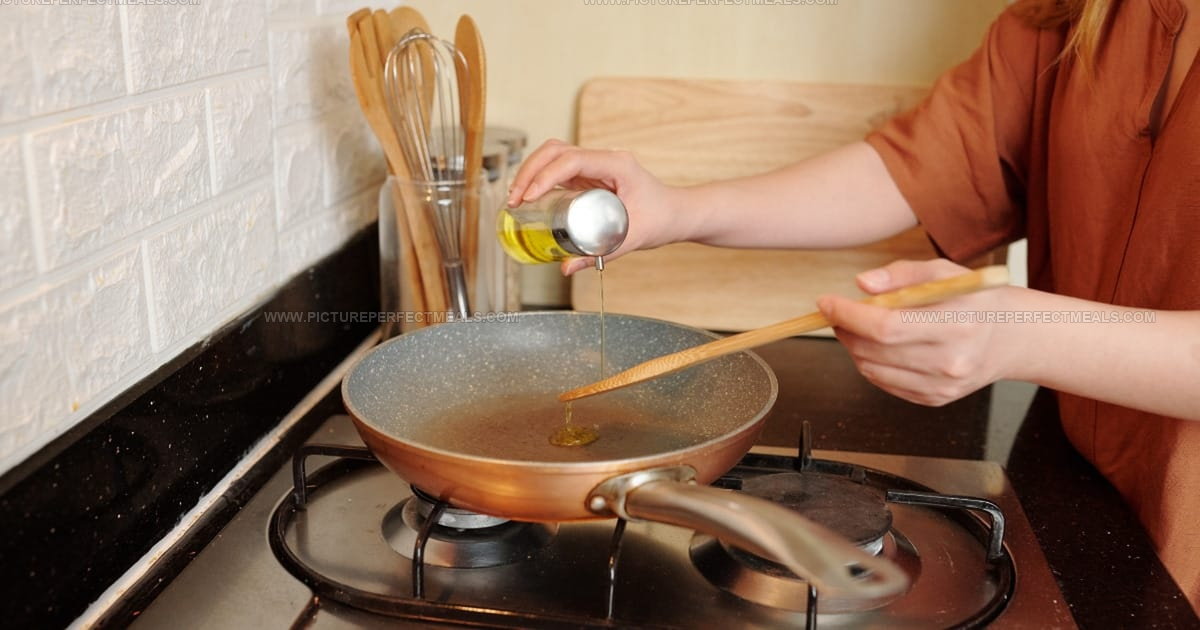

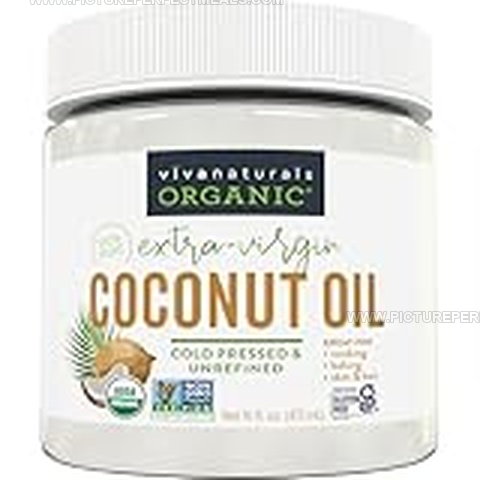
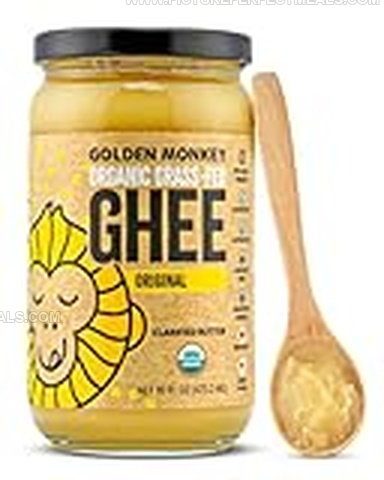
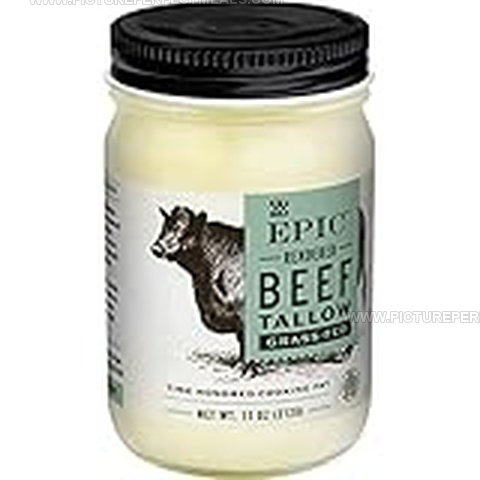
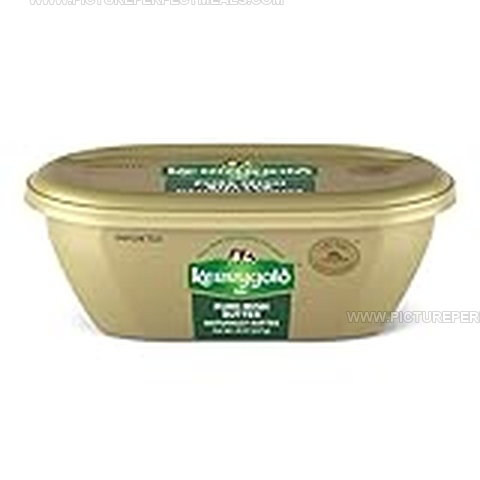
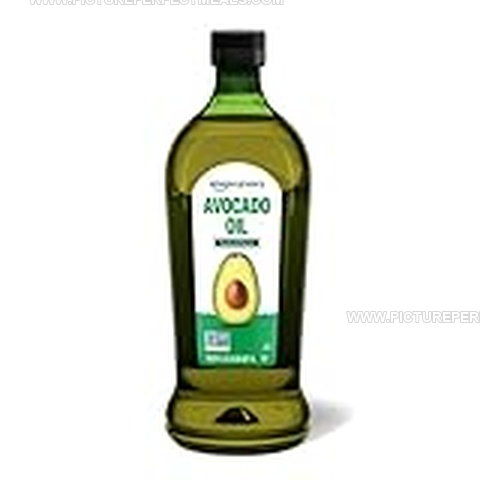
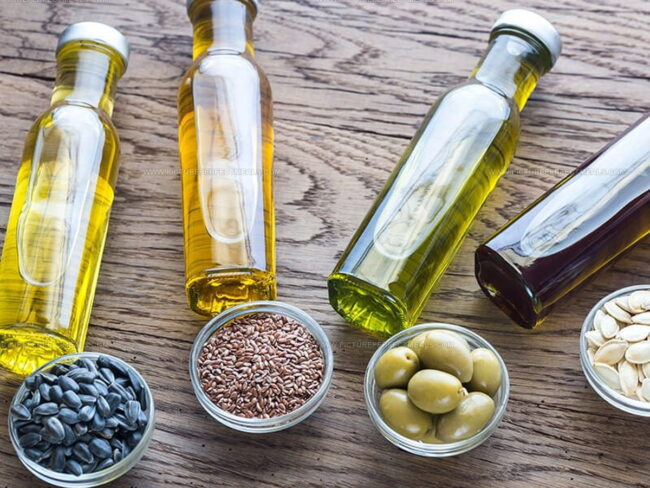
Daves Miller
Contributing Chef & Culinary Educator
Expertise
Education
Sullivan University, Louisville, Kentucky
White Mountains Community College, Berlin, New Hampshire
Daves is the friendly face guiding you through flavorful, fuss-free recipes at Picture Perfect Meals.
He studied culinary arts at Sullivan University and embraced Baking and Pastry Arts at White Mountains Community College. Daves specializes in comforting meals with vibrant flavors, highlighting fresh, seasonal ingredients.